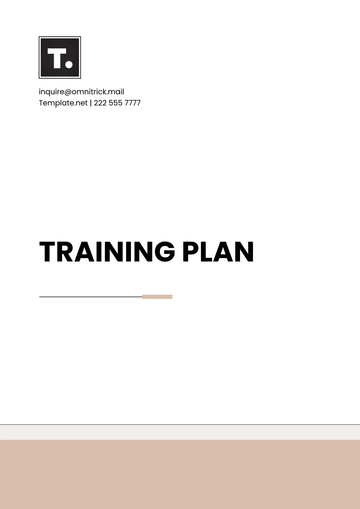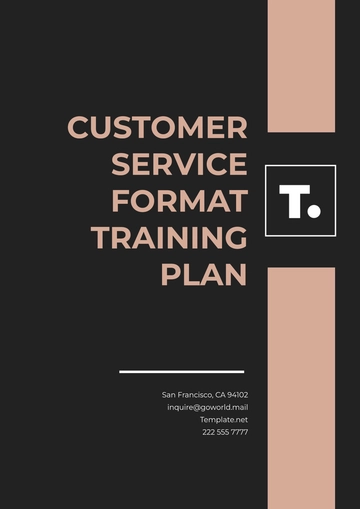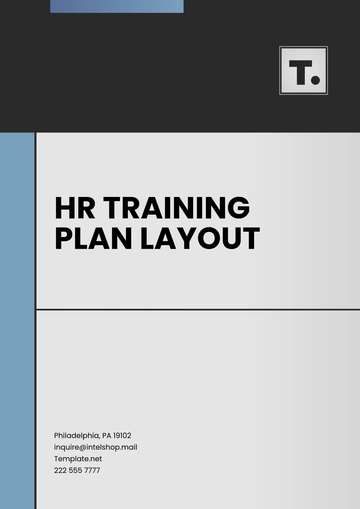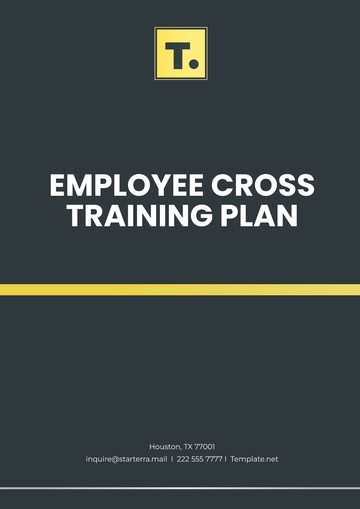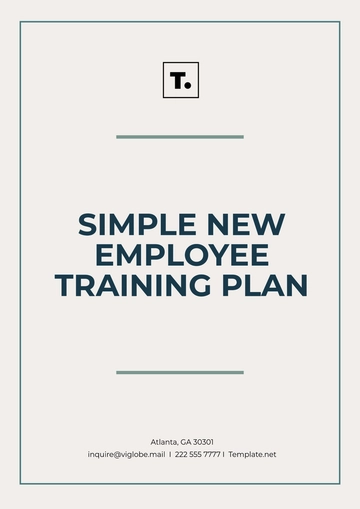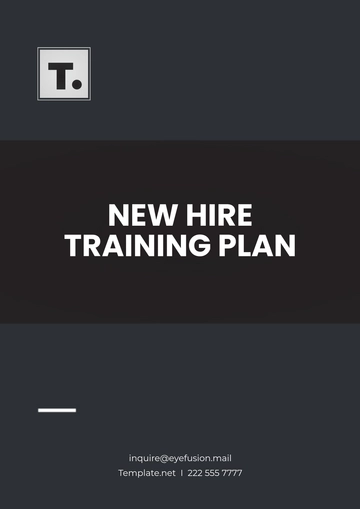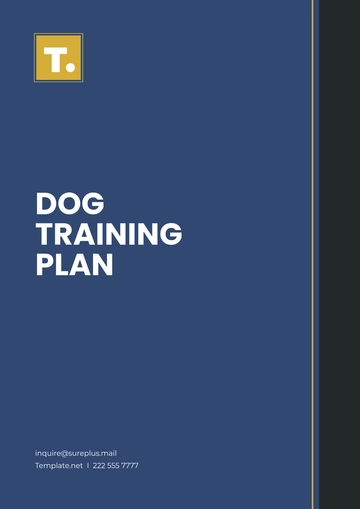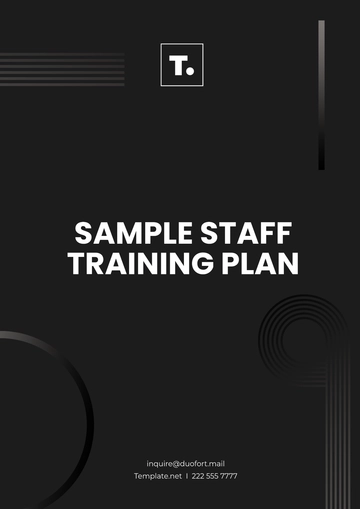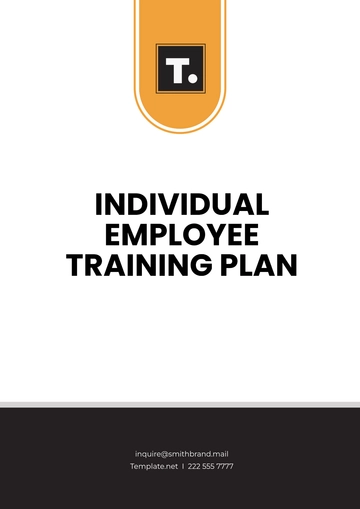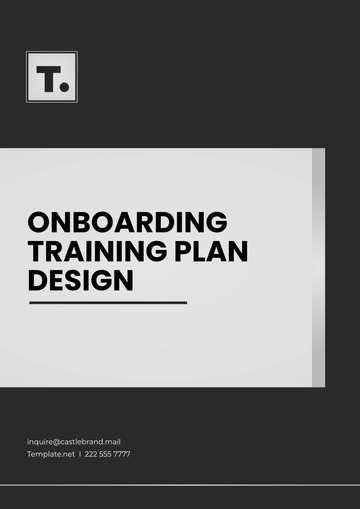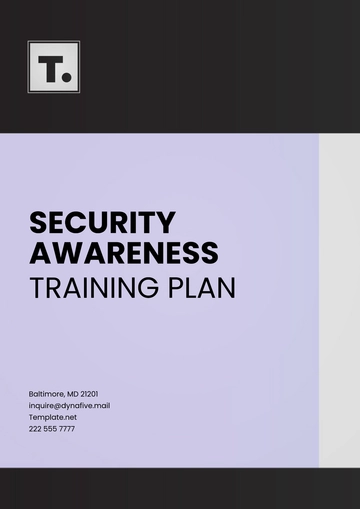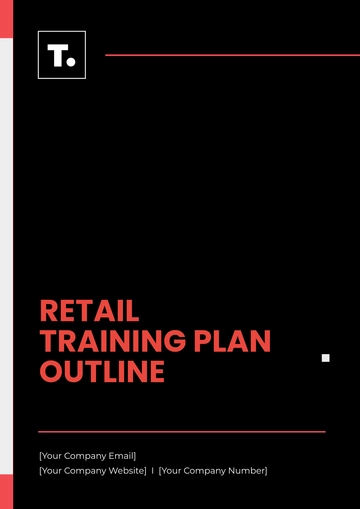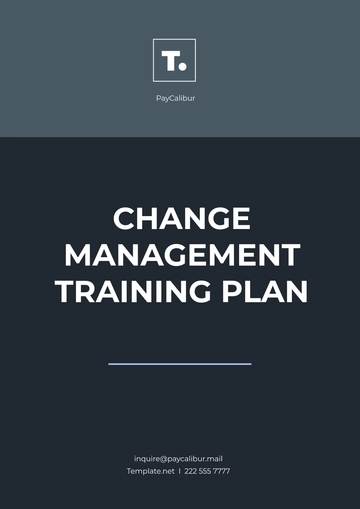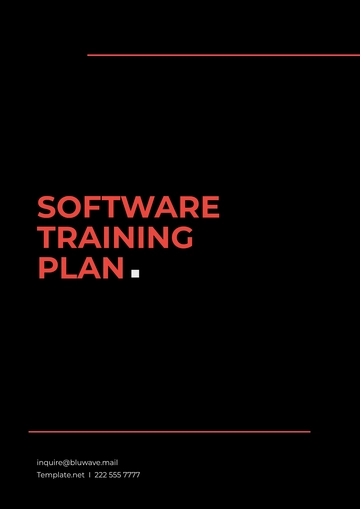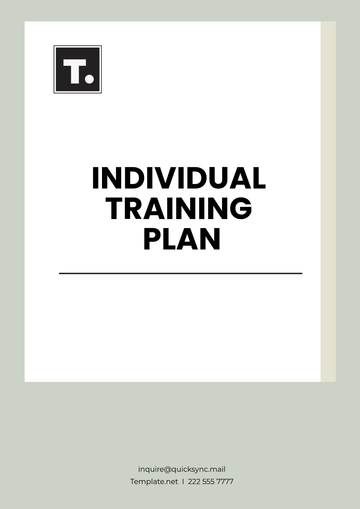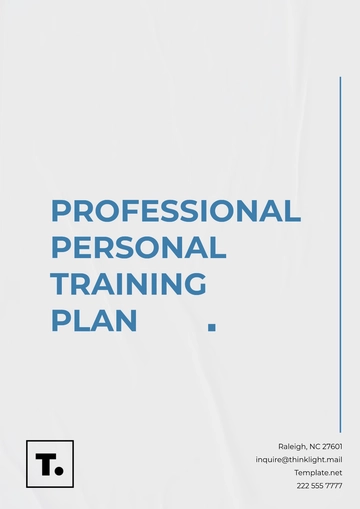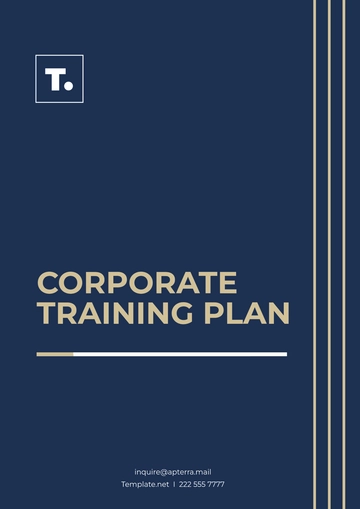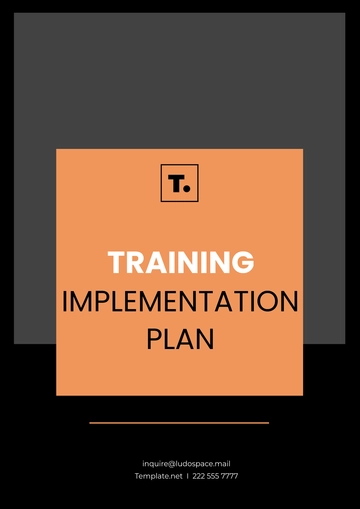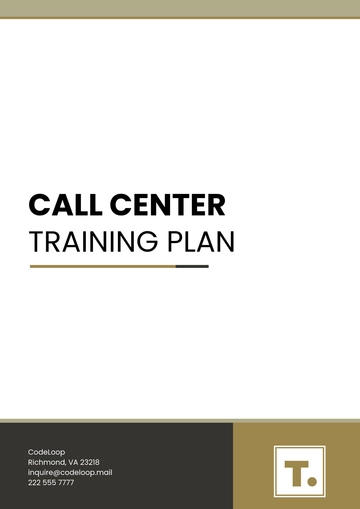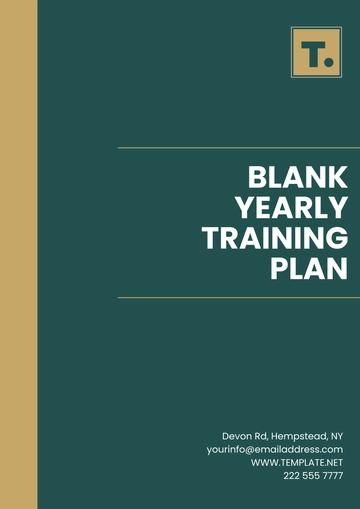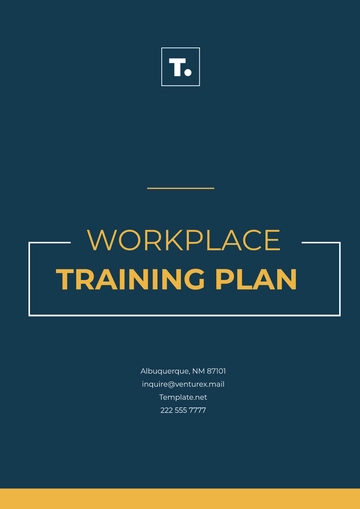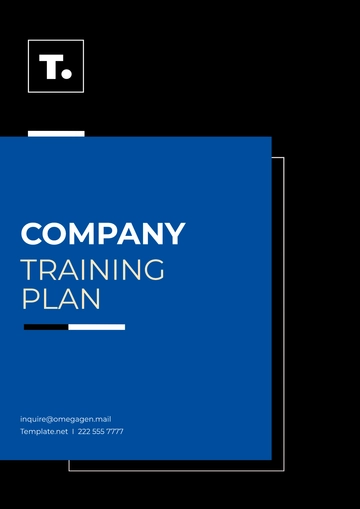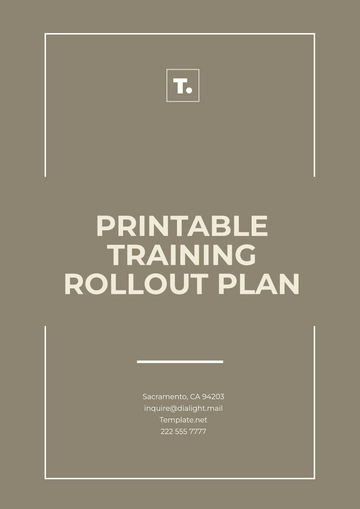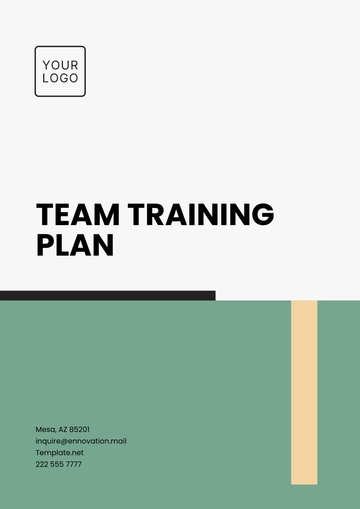Free Training Delivery Plan
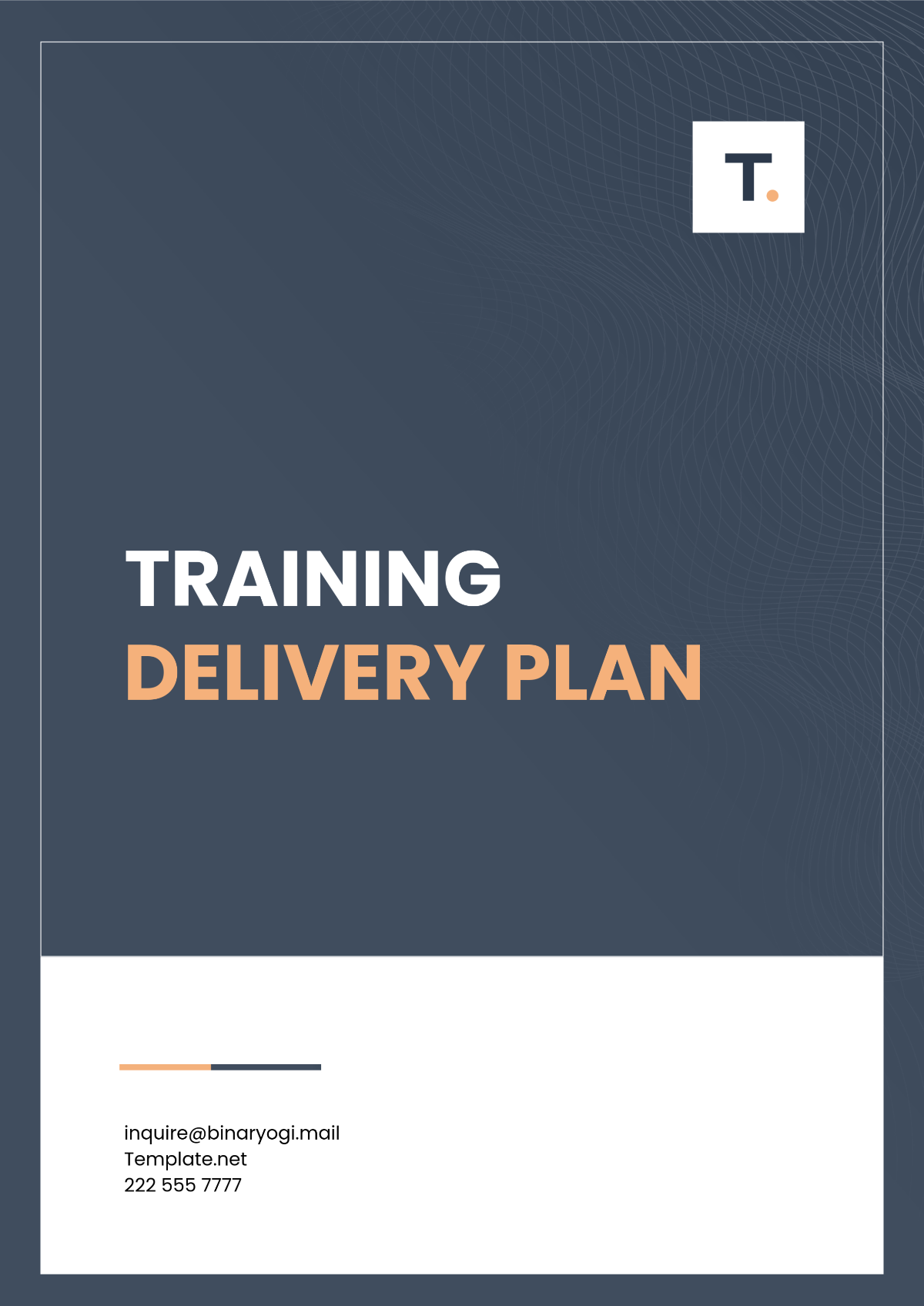
Written by: [YOUR NAME]
I. Introduction
The Compliance Training Delivery Plan outlines the strategy for delivering [YOUR COMPANY NAME]'s compliance training program. This program aims to ensure that all employees understand and adhere to regulatory requirements and company policies to maintain a compliant and ethical work environment. Compliance training is vital for fostering a culture of integrity and accountability within the organization while mitigating risks associated with non-compliance.
II. Objectives
To familiarize employees with relevant laws, regulations, and company policies governing their roles and responsibilities.
To promote a culture of compliance and ethics within the organization by emphasizing the importance of integrity and ethical behavior in all business activities.
To mitigate risks associated with non-compliance, including legal penalties, financial loss, reputational damage, and loss of customer trust.
III. Training Content
Module 1: Introduction to Compliance
Overview of compliance principles and their significance in maintaining ethical business practices.
Explanation of relevant laws and regulations, including but not limited to labor laws, industry-specific regulations, and data privacy laws.
Introduction to [YOUR COMPANY NAME]'s compliance policies, including the code of conduct, anti-discrimination policies, and conflict of interest policies.
Module 2: Anti-Bribery and Corruption
Understanding anti-bribery and corruption laws, such as the Foreign Corrupt Practices Act (FCPA) and the UK Bribery Act.
Recognizing bribery and corruption red flags and understanding the consequences of engaging in bribery or corruption.
Procedures for reporting suspected violations, including anonymous reporting channels and whistleblower protections.
Module 3: Data Privacy and Protection
Overview of data privacy regulations, such as the General Data Protection Regulation (GDPR) and the California Consumer Privacy Act (CCPA).
Best practices for handling sensitive information securely, including data encryption, access controls, and data breach response protocols.
Procedures for reporting data breaches and mitigating the impact on affected individuals and the organization.
IV. Training Delivery Methods
Online Courses: Utilize the Learning Management System (LMS) to deliver interactive online modules accessible to all employees, allowing for self-paced learning and flexibility in scheduling.
Instructor-Led Workshops: Conduct face-to-face workshops facilitated by compliance experts for in-depth discussions, case studies, and practical exercises to reinforce key concepts and promote active learning.
Webinars: Host live webinars on specific compliance topics to engage remote employees, facilitate real-time Q&A sessions, and provide updates on regulatory changes and emerging compliance issues.
V. Training Schedule
Module | Training Method | Dates |
|---|---|---|
Introduction to Compliance |
|
|
Anti-Bribery and Corruption |
|
|
Data Privacy and Protection |
|
|
VI. Evaluation and Assessment
Assessment | Timing |
|---|---|
Pre-training assessments | Before each module |
Post-training evaluations | After each module |
Feedback surveys | After completion of all modules |
VII. Training Resources
Resource Type | Description |
|---|---|
Policy Documents | Comprehensive documents outlining [YOUR COMPANY NAME]'s compliance policies and procedures. |
Regulatory Guidelines | Official regulations and guidelines relevant to the industry and geographic locations of operation. |
Best Practices Guides | Documents outlining best practices for maintaining compliance and ethical business conduct. |
Case Studies | Real-life scenarios illustrating compliance challenges and solutions for practical learning. |
Videos | Educational videos covering key compliance topics and case studies for visual learning. |
Articles | Articles discussing relevant compliance issues, updates, and best practices for further reading. |
VIII. Training Facilitators
Facilitator Name | Expertise |
|---|---|
[FACILITATOR'S NAME] | Compliance Officer with 10+ years of experience in regulatory compliance and ethics training. |
[FACILITATOR'S NAME] | Legal Counsel specializing in corporate law and compliance, providing legal insights and guidance. |
[FACILITATOR'S NAME] | Subject Matter Expert in data privacy and protection, offering expertise in GDPR and CCPA compliance. |
IX. Communication Plan
Email Communication: Regular emails will be sent to all employees to communicate training schedules, objectives, and expectations. These emails will include links to relevant training materials and resources.
Intranet Announcements: Announcements will be posted on the company intranet to inform employees about upcoming training sessions, deadlines, and any updates to compliance policies or regulations.
Staff Meetings: Compliance training will be discussed during departmental and company-wide staff meetings to emphasize its importance and address any questions or concerns raised by employees.
Regular Updates: Periodic updates and reminders will be sent to reinforce the relevance of compliance training, encourage participation, and address any feedback or inquiries from employees.
X. Conclusion
The Compliance Training Delivery Plan outlines a comprehensive approach to ensuring [YOUR COMPANY NAME]'s employees are equipped with the knowledge and skills to maintain compliance and uphold ethical standards in their day-to-day activities. By following this plan, we aim to mitigate risks, foster a culture of integrity, and safeguard our reputation as a responsible corporate citizen.
- 100% Customizable, free editor
- Access 1 Million+ Templates, photo’s & graphics
- Download or share as a template
- Click and replace photos, graphics, text, backgrounds
- Resize, crop, AI write & more
- Access advanced editor
Enhance your training programs with the Training Delivery Plan Template from Template.net. This highly customizable and editable template allows you to tailor each plan to your needs. Utilize the AI Editor Tool to effortlessly refine details, ensuring your training sessions are organized and effective. Achieve your training goals with ease using this versatile template.
You may also like
- Finance Plan
- Construction Plan
- Sales Plan
- Development Plan
- Career Plan
- Budget Plan
- HR Plan
- Education Plan
- Transition Plan
- Work Plan
- Training Plan
- Communication Plan
- Operation Plan
- Health And Safety Plan
- Strategy Plan
- Professional Development Plan
- Advertising Plan
- Risk Management Plan
- Restaurant Plan
- School Plan
- Nursing Home Patient Care Plan
- Nursing Care Plan
- Plan Event
- Startup Plan
- Social Media Plan
- Staffing Plan
- Annual Plan
- Content Plan
- Payment Plan
- Implementation Plan
- Hotel Plan
- Workout Plan
- Accounting Plan
- Campaign Plan
- Essay Plan
- 30 60 90 Day Plan
- Research Plan
- Recruitment Plan
- 90 Day Plan
- Quarterly Plan
- Emergency Plan
- 5 Year Plan
- Gym Plan
- Personal Plan
- IT and Software Plan
- Treatment Plan
- Real Estate Plan
- Law Firm Plan
- Healthcare Plan
- Improvement Plan
- Media Plan
- 5 Year Business Plan
- Learning Plan
- Marketing Campaign Plan
- Travel Agency Plan
- Cleaning Services Plan
- Interior Design Plan
- Performance Plan
- PR Plan
- Birth Plan
- Life Plan
- SEO Plan
- Disaster Recovery Plan
- Continuity Plan
- Launch Plan
- Legal Plan
- Behavior Plan
- Performance Improvement Plan
- Salon Plan
- Security Plan
- Security Management Plan
- Employee Development Plan
- Quality Plan
- Service Improvement Plan
- Growth Plan
- Incident Response Plan
- Basketball Plan
- Emergency Action Plan
- Product Launch Plan
- Spa Plan
- Employee Training Plan
- Data Analysis Plan
- Employee Action Plan
- Territory Plan
- Audit Plan
- Classroom Plan
- Activity Plan
- Parenting Plan
- Care Plan
- Project Execution Plan
- Exercise Plan
- Internship Plan
- Software Development Plan
- Continuous Improvement Plan
- Leave Plan
- 90 Day Sales Plan
- Advertising Agency Plan
- Employee Transition Plan
- Smart Action Plan
- Workplace Safety Plan
- Behavior Change Plan
- Contingency Plan
- Continuity of Operations Plan
- Health Plan
- Quality Control Plan
- Self Plan
- Sports Development Plan
- Change Management Plan
- Ecommerce Plan
- Personal Financial Plan
- Process Improvement Plan
- 30-60-90 Day Sales Plan
- Crisis Management Plan
- Engagement Plan
- Execution Plan
- Pandemic Plan
- Quality Assurance Plan
- Service Continuity Plan
- Agile Project Plan
- Fundraising Plan
- Job Transition Plan
- Asset Maintenance Plan
- Maintenance Plan
- Software Test Plan
- Staff Training and Development Plan
- 3 Year Plan
- Brand Activation Plan
- Release Plan
- Resource Plan
- Risk Mitigation Plan
- Teacher Plan
- 30 60 90 Day Plan for New Manager
- Food Safety Plan
- Food Truck Plan
- Hiring Plan
- Quality Management Plan
- Wellness Plan
- Behavior Intervention Plan
- Bonus Plan
- Investment Plan
- Maternity Leave Plan
- Pandemic Response Plan
- Succession Planning
- Coaching Plan
- Configuration Management Plan
- Remote Work Plan
- Self Care Plan
- Teaching Plan
- 100-Day Plan
- HACCP Plan
- Student Plan
- Sustainability Plan
- 30 60 90 Day Plan for Interview
- Access Plan
- Site Specific Safety Plan
